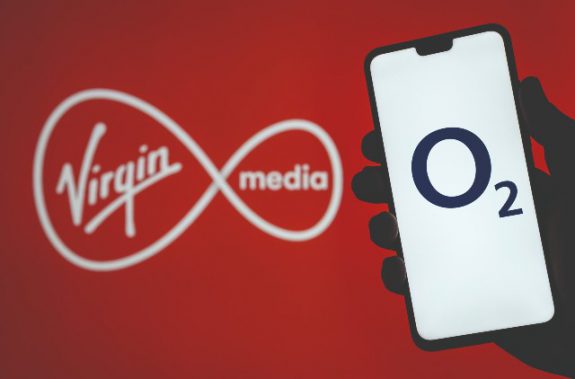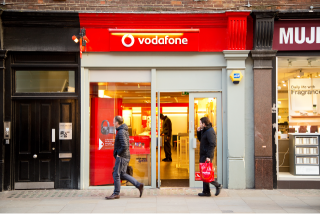

Talks of consolidation has been rife within the telecoms industry ever since Virgin Media and O2 merged in 2021. Now it seems that mobile networks Three and Vodafone want to strike a deal, as well as some in the broadband space. Analysts in the industry share their thoughts…
In June 2021, Virgin Media O2 officially launched as two of the biggest networks merged to create a company that offers fast, widely available broadband.
At the time of the merger, it combined O2’s 34 million mobile users and Virgin Media’s 5.3 million customers in a £31 billion deal and outlined its plans to invest at least £10 billion over the next five years.
Just over a year later, the brand has achieved milestones in connectivity and gigabit rollout, and has even introduced a joint venture called ‘Volt’ which rewards customers for having an O2 pay monthly plan and Virgin Media broadband.
CCS Insight director of consumer and connectivity Kester Mann says it may be too early to say if the Virgin Media O2 merger has been successful, but that it has achieved a lot in 15 months.
“It’s launched the Volt proposition, focused on gigabit broadband rollout, established the fibre joint venture recently, and it’s steadily making inroads into areas like private networks and small businesses,” he says.
“It’s done a good job in making a presence in the market and pushed hard on the marketing and brand awareness.”

Challenges from Ofcom and CMA
Counterpoint Research VP and research director Peter Richardson and associate director Jan Stryjak agree that it may be too early to tell, but it appears to be going well.
“A recent study by RootMetrics revealed that all four major UK mobile operators, including Virgin Media O2, improved download speeds, reliability and latency of their networks in the first half of 2022,” both says.
Meanwhile, IDC research manager Richard Thurston is more certain on the merger’s success.
“We’ve seen Virgin Media O2 win deals in mobile private networks, which is a significantly growing market, and one which we’re excited about because of the multitude of use cases and the innovation in this space,” he says.
Ofcom and the Competition and Markets Authority gave Virgin Media O2 the green light to consolidate despite former potential mergers being blocked.
Three’s attempted acquisition of O2 in 2015 was blocked, but it seems that regulators are becoming more lenient in an ever-changing industry.
“Ofcom is perhaps softening its stance and will want to see the mobile telecoms market thrive despite the turbulent pressures the industry is facing,” Thurston says.

But Mann believes that Ofcom and the CMA awarded Virgin Media O2 the go-ahead because both companies specialise in different aspects of the market.
“The main thing is that we’re talking about a predominantly mobile company and a predominantly broadband company, so it’s two separate markets and no concern that there is a player that can dominate in one particular market,” says Mann.
“The case with Three and O2 was that it would create a significant player in the mobile market and that’s why it got blocked by the CMA, but broadband to mobile mergers should get a good chance of getting through.”
Richardson and Stryjak agree that the Three and O2 merger was most likely blocked because they are both mobile network operators, but they also believe that the regulators are starting to change their views on mergers in general.
“We suspect regulators are more lenient to mergers following the COVID-19 pandemic, which highlighted how important connectivity is to people.
“If a merger promises to improve connectivity and quality of service, then regulators seem to be happy to allow it these days.”
Three and Vodafone to merge
In recent years, consolidation in the telecoms space has become more common, and Thurston says this continues to be a trend across Europe.
“As recently as a month ago, Orange and Masmovil in Spain signalled their intent to combine their operations,” he explains.
“Telecoms is capital intensive, and operators are facing pressure to digitally transform and remain relevant as consumers and businesses face a multitude of network choices.”
Mann adds that the deal between Orange and Masmovil is mobile to mobile, and if this is approved then it gives confidence for other mobile operators to merge.
One merger that could go ahead pending regulatory approval is between Three and Vodafone, which would combine the UK’s third and fourth largest mobile network operators.
“The two companies have made no secret of their interest to consolidate,” Mann says.
“The leading motivation to join forces is scale. In telecommunications, the most successful companies tend to be the largest; bulking up would offer many synergies and cost-saving opportunities.
“Under the status quo, it’s hard to see either operator growing enough organically to get close to challenging BT and Virgin Media O2 for size in the UK.”
But he explains that the companies need to make a deal that works for both, and that regulation will be a major hurdle.

Meanwhile, Thurston thinks Three needs to offer more if it wants to merge with an operator like Vodafone.
“As a self-styled connectivity player, Three has achieved a reasonable set of results, primarily through growing consumer market share,” he says.
“But this is simply not enough going forward as successful telcos evolve to become digital service providers.
“Three will need to grow its business offering as a priority.”
Reasons to consolidate
Three UK’s CEO Robert Finnegan and Vodafone’s chief executive Nick Read have been vocal about the need for more consolidation within the telecoms industry, so it is no surprise that the two mobile companies are in talks about a potential deal.
In a previous Mobile News article in 2020, Finnegan spoke about the need for consolidation: “I think there are too many players; I don’t think it’s good for competition or the customer because investment into the industry is not as much as it would be in a more functional market.”
Earlier this year, Read stated that merged businesses could be attractive to investors and that there is a case for Vodafone to consolidate in the UK, Italy and Spain.
It seems that these operators are keen to strike a deal and Richardson and Stryjak believe that merging with another company can benefit operators in various ways.
“With a high-cost, high-capacity network, the important metric for mobile network operators is to have as many paying customers as possible,” they say.
“It’s about economies of scale- the more customers you have, the lower your marginal operating costs will be.”
They also say that from a customer’s perspective, it doesn’t matter who offers the tariffs as long as there is plenty of choice and some competition at wholesale level.
“As radio spectrum is limited, there needs to be strong regulation to ensure that this scarce resource is used properly and ensure fair competition- but otherwise three operators is likely as good as four.”


Mann thinks consolidation can benefit Three and Vodafone as bigger telecoms companies tend to be the most successful.
“There’s more purchasing power and more customers to sell to, so scale is a major reason for consolidation,” he says.
“You look at a competitive market like the UK, taking a player out of the market is one less provider to compete with.
“There’s also plenty of opportunity in terms of pushing into new markets and cost savings from bringing two companies together.”
Customer concerns
But it’s not just the operators that need to benefit from consolidation, customers also need to get the best out of it.
Regulators need to weigh up options to determine the pros and cons of consolidation and the impact it could have on customers.
Richardson and Stryjak believe that there shouldn’t be any downsides from reducing the competition from four to three players, as long as the deal is strong and fair.
“The only issue would be if the merger creates a dominant player, which could impact competition and therefore be bad for consumers,” they say.
“Looking at Q2 2022 mobile connections numbers, Vodafone UK and Three combined would create a player with a market leading 30 per cent share- but this is similar to Virgin Media O2 and EE with a 28 per cent and 26 per cent share respectively.”
Mann says regulators will always thoroughly investigate and analyse the benefits of mergers and reduce competition in the market.
“The argument for consolidation is that potentially having fewer providers means you can be more focused with investments, build out better quality of networks, infrastructure and therefore a better service to customers,” he says.
“The cons would be that this could be an opportunity for operators to put up prices as there are less of them, and could this impact customers?
“We’re already on the back of significant price rises from the spring, so would there be a concern of too much price rise and the competition being harmed to the detriment of customers.”

Potential broadband mergers
Another speculated merger is between TalkTalk and other telecoms companies, as Virgin Media O2, Sky and Vodafone have all been recently linked to the company.
Virgin Media O2 has put in an offer to buy TalkTalk, which would value the broadband provider at £3bn and will put pressure on those who want to offer an alternative offer.
Not much has been reported regarding offers from Vodafone and Sky, but we do know that Vodafone is facing pressure from its investors to consolidate- whether that is with Three or TalkTalk.
Mann explains that the TalkTalk acquisition is speculation at this point in time and that different operators have different motives.
“Virgin Media O2 could make a move because it comes down to scale and more customers as it can access customers that use the Openreach network that TalkTalk uses,” he says.
“For Sky, it would be about being a bigger player and being a threat to BT.
“Vodafone appears to have played this down and may not be in the running anymore, but we know it has ambitions in broadband.”
The acquisition of TalkTalk could change the telecoms space, but this all depends on which company ends up buying it.
Richardson and Stryjak think that if mergers become more common, then the market will end up evolving.
“Ultimately, we likely reach a point where we have a small number of integrated telecom operators that can provide fixed broadband, mobile and TV services,” they say.
“These can be packaged in multiple configurations to provide end customers with a huge range of options to suit particular needs and interests.”
Mann is a bit more uncertain about what the telecoms space would look like if TalkTalk is acquired.
“If it was VMO2 or Sky, they’re fairly premium brands so it would be interesting to see how they position TalkTalk,” he says.
“But TalkTalk customers get good value for money and they’d be keen to ensure that if it was acquired then they can get a similar level of service that they are getting at the moment.”






